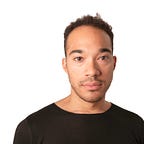Work on more than your resume to get hired in 2019.
Show, don’t tell.
Hiring wrong hurts.
In the ocean of hiring tips and strategies the one thing to remember is: companies are full of busy people who want to be certain that they’re inviting strong talent into their precious teams. Making a hiring mistake not only means starting the process all over, but also translates into lost time, money, and the worst, lost social capital.
That’s why we think traditional resumes are going away.
And they should. Not only are they usually poorly written, but they’re one of the least insightful tools we have for hiring. Words on a piece of paper usually fails to capture the capacity of a person to execute and produce great work.
“When I spot a great resume, I might have a 50/50 shot of the person being able to do the job.” — Tech CEO, Kenya
Our team and others have discovered better approaches to building a company’s confidence about meeting you and ultimately hiring you. For simplicity, let’s sort these new approaches into three groups: profiles, publishing, and portfolios.
Profiles
This is the “about me” section on every social media or community you’ve ever signed up for. The purpose behind this section is to connect you to like-minded folks. So it’s important to convey an honest story that captures the essence of who you are and what you do so the most relevant people can find you.
For example, designers have profile pages on Behance, marketers on Twitter, business developers on LinkedIn, etc. And they are becoming increasingly niche. Every one of these profile pages says something about your interests and skills. Don’t be surprised if a company discovers you because of your social media profile.
Publishing
These sources allow you to communicate your interests and expertise by using your own words and in your own style. For example, you might publish code commentary on Stack Overflow, UX trends on Medium, or prototyping tips on YouTube.
What you choose to spend your time researching and sharing tells potential recruiters about your interests. Also, how you say it reveals a lot about the way you think. Sometimes your old blog posts rank much higher than your in-person interview in a hiring decision.
Portfolios
Finally, perhaps most importantly, there are places that allow you to show rather than talk about your skills. An obvious one is Github which allows engineers to post code.
Clearly, the three items above are much more effective at conveying what you’re all about rather than a couple of exaggerated sentences under a job title on your CV.
Despite that, most organizations will look at your resume, and some will ONLY look at your resume. As a candidate, how can you possibly convey all of your achievements, skills, and growth potential in a page or two?
Here are a few tips that will help:
Communicate skills and results
Employers care that you are and can be part of a winning team. It means very little to say “I hit all my targets” at a failed company. Your goal is not only to show how you succeeded at something but how your work contributed to the overall success of the company.
To be really specific, start sentences describing experiences with a past tense verb such as: Built, Completed, Formulated. Also, include specific skills you used. Most importantly, make sure you relate your achievements to the bigger story or the company’s overall goal.
A few of those statements for each experience on your resume make you look like a solid bet. Don’t forget that the key goal behind your resume is to build confidence.
Show, Don’t Tell
As elaborated above, just talking about yourself will not cut it in the long run. Instead, build a portfolio page and link your resume to a compilation of the actual output of your efforts, whether these are Github codes, academic reports and papers, or design work.
Links to specific past projects will say much more about you than a few sentences on a resume. In other words, “Show, don’t tell.” This still applies even if you’re not a coder. Link to some press releases or articles about some of your successful projects.
Share your commitment to learning
Degrees are great. The problem is their value in predicting your job performance expires a short one year after graduation. What most savvy employers really want to know is, do you have the ability to learn quickly and apply what you’ve learnt to your field?
What’s more important than knowledge is how you apply that knowledge.
Take a few classes online or do a few side projects and share them. Actions always speak louder than words. Instead of saying, “I’m a fast learner” show that you are committed to lifelong learning.
As Cal Newport advises, “Be so good they can’t ignore you.” The more you display your skills through your portfolio, the more reasons you’re giving them to want to meet you.
Good luck!
Ibanga Umanah is a Cofounder and the Head of Strategy for Brave Venture Labs. Brave is a people science company uncovering the drivers of performance for better recruiting and talent management.
Amina Islam has a Ph.D. in engineering and is currently putting her skills and academic background into doing evidence-based research on the impact of informal learning programs.
Get in touch to hire, get hired, or join our team: brave.careers
